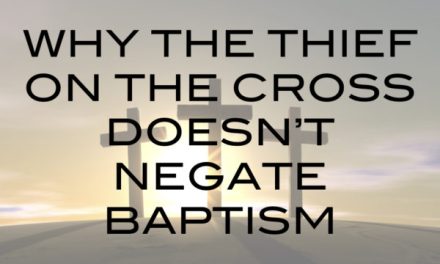As long as I can remember I’ve heard it said that the churches of Christ were once the fastest growing religious movement in the world, supposedly during the 1950s or thereabouts.
Though there’s reason to doubt the veracity of the claim, I think we can all agree that, at the very least, we used to be much faster-growing than we are today. In fact, there’s reason to believe we’re actually declining rather than growing.
I’ve heard older members of a number of congregations reminisce of days gone by when the pews were full in their buildings that now stand half empty on Sundays, a testament to the growth of the past that necessitated buildings of that size and the decline today that leaves them nearly deserted.
This is not a “the church is dying” article, as I’m well aware that plenty of congregations are doing great. However, I do think there’s a lesson to be learned in the drop off from those days of rapid growth to our current struggles.
Like Israel when they moved into the promised land and decided to rest rather than finishing the job set before them and passing the faith on to their children, our growth turned into regression because we haven’t finished the job and kept moving forward.
Like Israel, we’ve been given a mission of conquest as well – the Great Commission. When we hear that term, it’s typically used in reference to our need to evangelize. Because most of us struggle with evangelism, the Great Commission has been relegated to the back burner as one of many programs of the church rather than our driving principle. And, though evangelism is certainly a crucial part of the Great Commission, it doesn’t capture the whole.
The Great Commission was intended as a cycle that would perpetuate the growth of the church from person to person, nation to nation, and generation to generation.
What we have is a command (make disciples) outlined by three participles: going, baptizing, teaching. We are to go about our lives with the mission to spread the name of Jesus, baptizing those who accept Him as Lord. That’s what we did so well in generations past that led to so many being added to the church.
However, it’s that third participle that is the hinge upon which the Great Commission hangs. It’s what makes the cycle go. “Teaching them to observe all that I commanded you” tasks us with the responsibility to take those who have been brought in as a result of our going and baptizing until they can follow in Jesus’ footsteps and do their own going, baptizing, and teaching.
It’s a formula that was intended to bring us exponential growth, with 11 disciple-makers producing into 22 disciple-makers, who in turn produce 44 disciple makers, and so on. On the other hand, when we don’t do this – when we are satisfied with baptizing folks and telling them to show up to “church,” have a private, personal walk with God, and try not to sin – the cycle dies. And I believe that’s where the cycle broke down from our fast-growing days of the past.
If this diagnosis is correct, one would expect a few symptoms as evidence. You would expect to see churches more concerned with getting and keeping people than sending people, which I believe is a fair diagnosis of many today. You would expect that our growth rate would decline and eventually turn into regression, as it has. You would expect that subsequent generations would depart from the faith in large numbers, which they have. And, you would expect that many Christians would have a consumeristic view of Christianity, bouncing from congregation to congregation based on what the congregation offers them rather than committing themselves to be disciples on the move to carry out the mission of God, which is also the case. (No, this is not universally applicable, of course. But, generally speaking, I believe this is where many stand.)
The answer, then, is to start the cycle back up where we left off. Every Christian is a result of the going and baptizing sections of the Great Commission. Now it’s time to reinvest in the cycle, teaching them to observe all Jesus commanded and helping them become like Christ, then launching them to continue the cycle with others.





